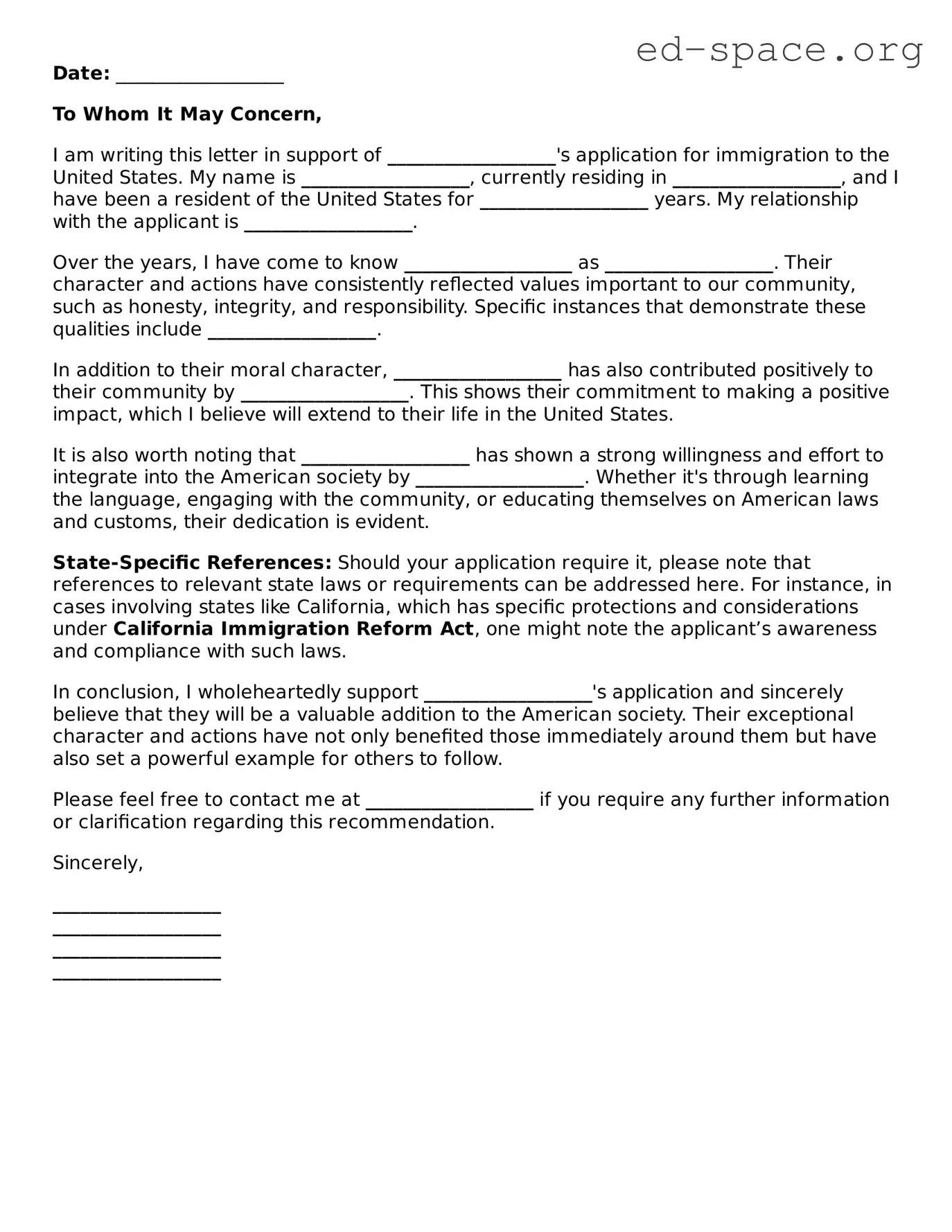What is a Character Reference Letter for Immigration?
A Character Reference Letter for Immigration is a document that provides insight into the moral and ethical character of an individual undergoing an immigration process. It is written by someone who knows the person well, typically a friend, neighbor, employer, or family member, and seeks to highlight the individual's positive qualities, contributions to the community, and the reasons why they would be a valuable asset to the country.
Who needs to write the Character Reference Letter for Immigration?
The letter should be written by someone who has a significant relationship with the applicant and can speak to their character and personal qualities authentically. Ideally, this person has known the applicant for several years and can provide specific examples that demonstrate the applicant's integrity, reliability, and community involvement.
What should be included in the Character Reference Letter for Immigration?
The letter should include the writer's relationship to the applicant, how long they've known each other, and detailed examples of the applicant's good character. It should also mention any contributions the applicant has made to their community, their work ethics if relevant, and why they believe the applicant would be a valuable addition to the country. The letter should be concluded with the writer's contact information, offering to provide further information if required.
How should the Character Reference Letter be formatted?
The letter should be typed and no more than a page long. It's best to use a formal but personal tone, addressing the immigration authorities respectfully. The layout should include the writer's contact information at the top, the date, a formal greeting, the body of the letter, a closing statement, and the writer's signature.
Can a Character Reference Letter for Immigration affect the outcome of an immigration case?
Yes, a well-written Character Reference Letter can significantly impact the outcome of an immigration case. It humanizes the applicant, providing the immigration authorities with a more comprehensive view of their character beyond legal documents and forms. This can be particularly beneficial in cases that might otherwise be borderline, helping to tip the scales in the applicant’s favor.
Are there any common mistakes to avoid when writing a Character Reference Letter for Immigration?
Common mistakes include providing vague statements without examples, forgetting to mention the writer’s relationship and duration of knowing the applicant, and errors in grammar or spelling. Overly emotional language should be avoided; instead, focus on factual, concrete examples of the applicant's character. Lastly, ensure the letter is signed and dated to lend it credence.
Is there a privacy concern when providing personal details in the Character Reference Letter for Immigration?
When writing the letter, it's important to balance privacy concerns with the need to provide a compelling and detailed account of the applicant's character. While it’s necessary to include specific examples, avoid sharing sensitive personal information that the applicant may not wish to disclose publicly. Always review the letter with the applicant before submitting it to ensure they are comfortable with the content.
